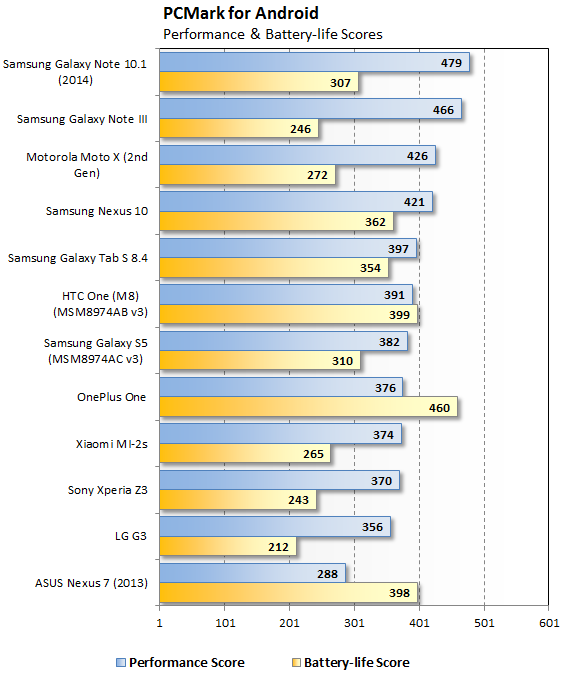First PCMark for Android Results Help Show Which Devices Sacrifice Battery-life for Performance
A couple of weeks ago, Futuremark began handing out copies of PCMark for Android to members of the press, in an effort to get its leaderboards filled up a bit while the finishing touches were being put on the app. That might give you pause in that the results, generated today, are not going to be entirely accurate when the final version comes out, but that's not the case - Futuremark has encouraged publication of results generated with the benchmark.
What makes PCMark for Android a useful benchmark is that it not only tests for performance, but also for battery-life and performance combined. Solutions like this have already existed, with some especially good ones from the folks at BenchmarkXPRT, but there's just something about the "Futuremark" name that tends to lure people in. The company's 17 years' worth of experience in developing benchmarking apps doesn't hurt.

PCMark for Android, Credit: Futuremark
Nonetheless, because PCMark for Android gives us the ability to generate results for both battery-life and performance, we can easily figure out which devices sacrifice battery-life for performance - and which ones have a good blend of both. After scouring the leaderboards for some key models, we're able to see which device excels, and which falls flat:

Data Source: Futuremark PCMark For Android Results Database
Right off the bat, the HTC One M8 really stands out thanks to it's nearly even performance/battery-life ratio. A result like that might make you think that neither value could be that great, but that's not the case at all. In fact, the battery-life rating on that phone places far beyond some of the other models, only falling short to the OnePlus One. And speaking of that phone, it becomes obvious with PCMark why it's so hyped-up: It not only delivers solid performance, it boasts some killer battery-life.
Countering those impressive results are the disappointing ones seen with the LG G3 (our review). While it offers performance on par with what we'd expect from a phone released this year, its battery-life is nothing short of appalling. Sony's Xperia Z3 and Xiaomi's MI-2s don't fall far behind, though.
We can also see quite a variance on the tablet front. ASUS' second-gen Nexus 7 has sub-par performance among the rest of the products in this chart, but it delivers some awesome battery-life - perhaps not surprising given its ability to hold a much larger battery. Then we have Samsung's Galaxy Note 10.1, which offers the best performance of the bunch, but fails to deliver the same kind of impressive result with the battery-life.
Something I should stress is that all of these results are based on a handful of submissions - only members of the press have had access to the benchmark so far, after all. Naturally, once the benchmark gets released to the public, each product will enjoy many more submissions, ultimately giving us far more accurate results. What we see so far is very interesting, however, with the Samsung Galaxy Note 10.1 proving to offer some fantastic performance, and the OnePlus One delivering very well on both the performance and battery-life fronts.

